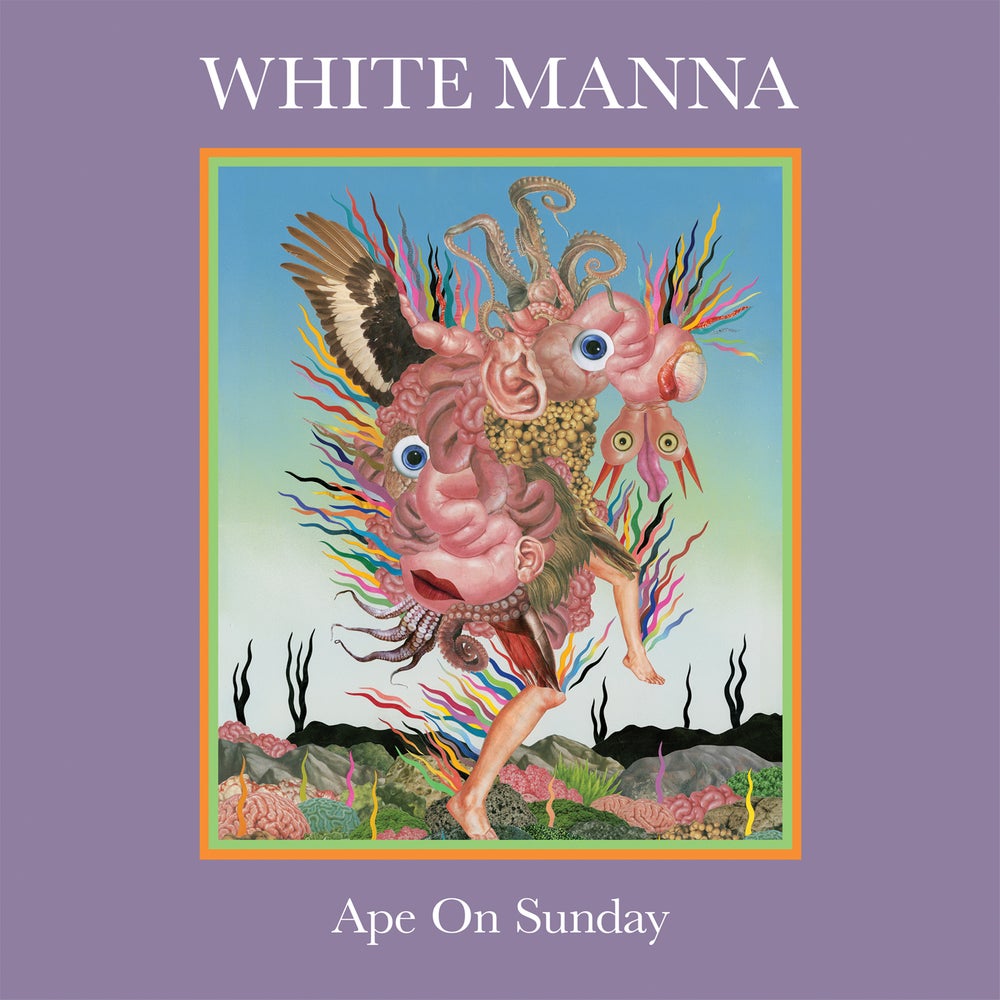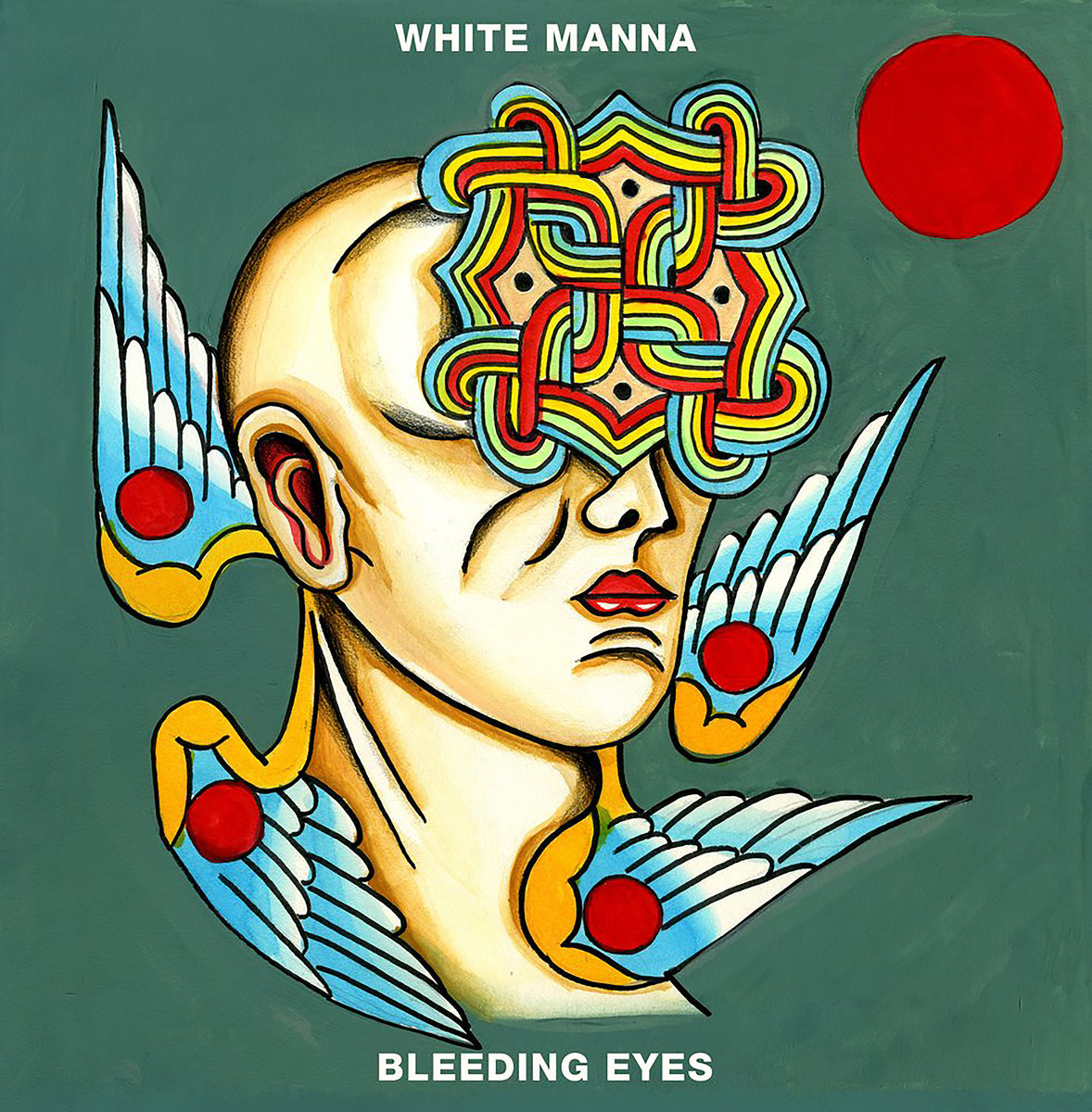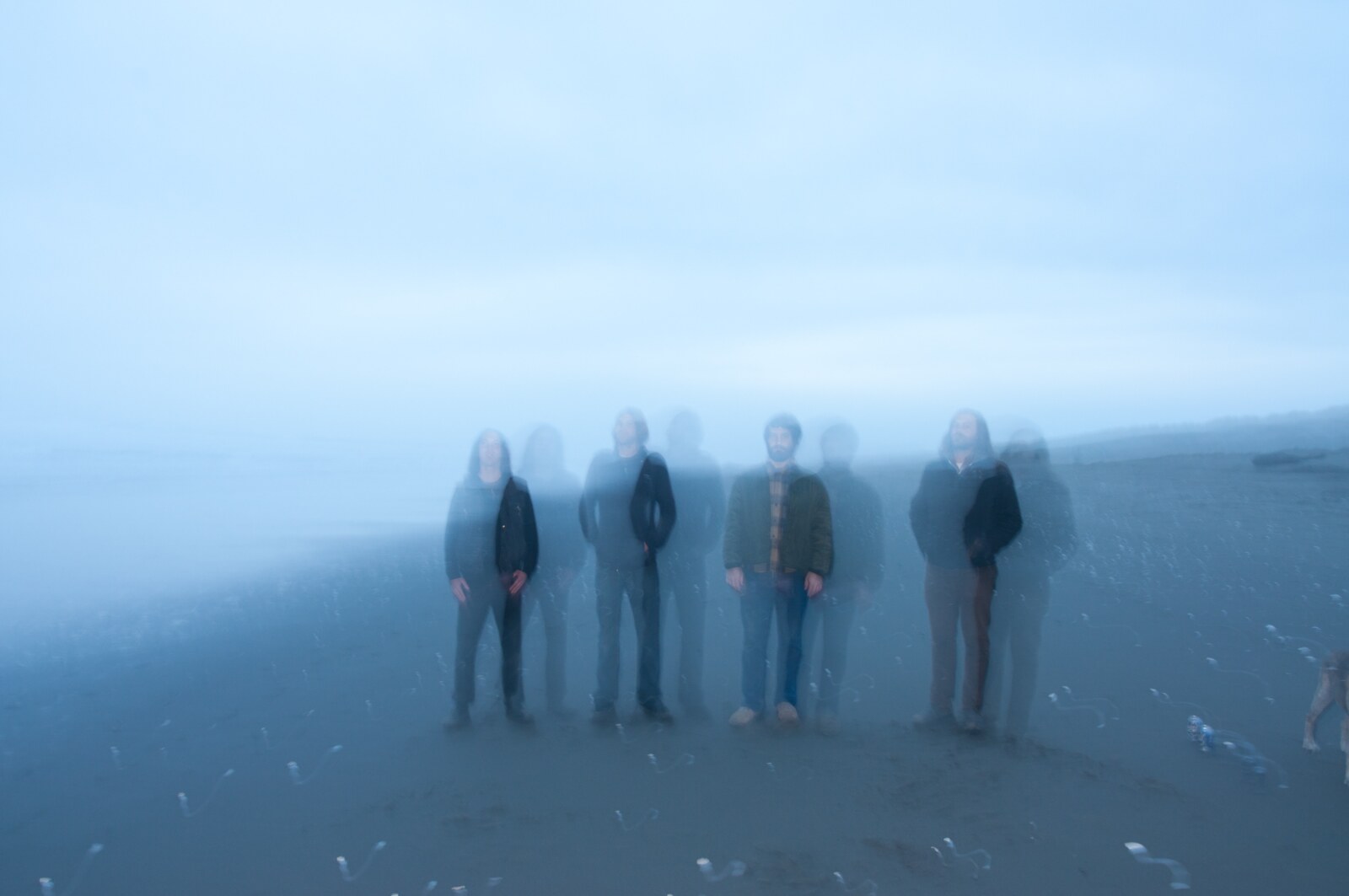White Manna interview
White Manna (Arcata, California) has released six studio albums and one live album since 2012, and in that time hundreds of playground scuffles have broken out over which one is the best.
In the band’s current iteration, Tavan Anderson handles drums and vocals, Johnny Webb plays bass, and Anthony Taibi and David Johnson each take care of guitar, vocals, and keys. David was infinitely gracious enough to mull over a few questions about his band’s approach throughout their varied discography.

Each White Manna album has a distinct sonic flavor. Come Down Safari, for example, takes its time to drift along woozy, dueling guitar lines and occasional chugging drums, mostly without vocals. An album like Bleeding Eyes, though, hits with a bright, pummeling, crisp sound, as if a knob had been turned to sharpen and glam up the tracks on Safari—plus it features layered, harmonized vocals. How deliberate is the variety of the White Manna catalogue? As you prepare each album, do you plan its distinct flavor, or does it arrive naturally?
The ideas or plans arrive very naturally—but in some sort of cycles or phases I suppose. I think it’s hard not to react from what you’ve expressed in the past, and as well reacting or filtering everything one is subjected to on a daily basis. Also, each song or group of songs we’ve recorded have taken on elements and meanings of their own just in the manner in which they were recorded.
Ape on Sunday, White Manna’s latest, offers perhaps the most twists and turns of all your albums. There are hard, sharp, deeply textured songs like the title track and “Eye in the Cloud that Serves as Thunder.” There are also softer, synthy tracks like “Zodiak Spree.” The guitar work in “More More More” might have arrived from a radio in the 1960s, but the background racket sounds like something from outer space. These disparate elements work together beautifully, and the album just about has to be listened to from beginning to end. Can you talk about the progression/sequencing of Ape? Is there a narrative arc? (And what about the allusions—to Lindbergh? to Whitman? to the Zodiac killer?)
Ape on Sunday came out through 3 or 4 different recording sessions, and these sessions all had a life of their own in a sense, this may be a part of the twists and turns. The sessions also took place in stretched out increments, but I think the general direction and sequence of songs was inherent through this time period. Certain songs helped shape other songs, I think the narrative arc is inevitable on an LP, whether successful or not. The template and constraints of time for a side of a record, or side A and B of a record become a whole new arc in themselves. The allusions you ask of are all there, I’d rather not fill your head with what they mean to me, but I would say they were all inspirations or launch pads for those songs. Also Zodiac Free…
“Chance and randomness are extremely important to our music”

What is your philosophy about vocals? (As a sidenote, “Dunes II” sits solidly in my list of favorite songs of all time, but I have no idea what you’re singing. Should I?)
I don’t think you need to know what I’m saying, it’s a mantra of sorts, and both “Dunes I” and “Dunes II” have almost the same lyrics. My philosophy about vocals is anything goes—as long as the sounds or words mean something to the person expelling them in that moment.
What is satisfying about creating a song that leans in the ambient direction? What about one with a verse-chorus structure?
I find both of these avenues to be satisfying really. Each song lends to a certain direction, sometimes it is served in a stew, and sometimes it’s served on separate plates. We don’t talk about things so much, for better and worse, that’s how we’ve always worked. There has definitely always been an underlying modus operandi with the band, we’ve always incorporated what is deemed ambient, but that too isn’t really discussed.
You’ve played shows to benefit social causes. The Bleeding Eyes gatefold features images of Dr. Martin Luther King, Jr. and Jesus (plus the Great Sphinx, a man who might be a monk, a mushroom, phases of the moon). What does the political mean to White Manna? What about the mystical?
We are not a political band, but people have trouble reprogramming, and change needs help. Dr. King, Jesus, the Moon, and Mushrooms are all inspiring Leaders and Teachers. What is mystical or unknown or unknowable is highly important in making one feel small.

You have visited Humboldt State University as a guest lecturer. What was the gist of your message? How does the crux of your work with White Manna jibe with the convention of something like attending a four-year college? How important is convention? What about tradition?
Tradition and convention are important to understand change and rebellion, and vice versa. HSU is in Arcata, the town where we live, and our friend Ben Funke, who runs Captcha Records, was teaching a class about putting out a record, a basic overview of what that entails from beginning to end, and so we participated with our album Pan. 2 or 3 of us in the band have attended HSU and maybe 1 of us graduated.

Recent White Manna internet postings show recording sessions at Redwood Acres. What’s cooking? Also, you seemed to be using Eno’s Oblique Strategies cards. How important is chance/randomness to your music?
We were recording at our bandmate Anthony’s studio, 3D Light, which is very close to Redwood Acres Fairgrounds. I keep Eno’s cards in my notes on my phone, I decided to use a couple during one of the days of recording—I believe they were helpful! Chance and randomness are extremely important to our music; improvisation, happy accidents, unhappy accidents, and rough around the edges.
Thank you so much, David. And cheers, to accidents of all kinds.
– Jeremy Noren
White Manna Bandcamp
White Manna Instagram
White Manna Facebook



